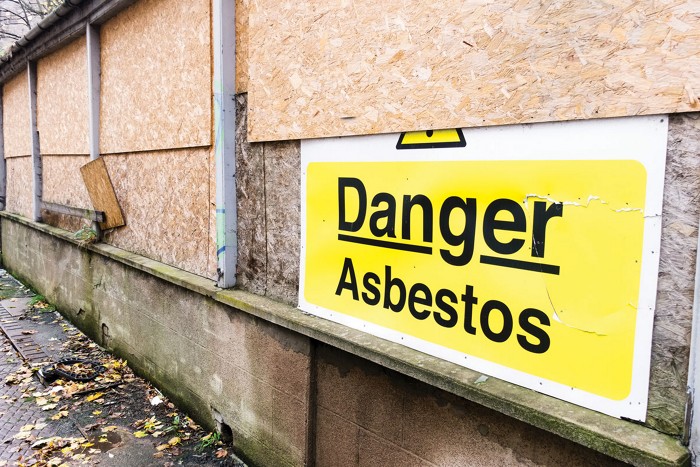Advertisement
Grab your lab coat. Let's get started
Welcome!
Welcome!
Create an account below to get 6 C&EN articles per month, receive newsletters and more - all free.
It seems this is your first time logging in online. Please enter the following information to continue.
As an ACS member you automatically get access to this site. All we need is few more details to create your reading experience.
Not you? Sign in with a different account.
Not you? Sign in with a different account.
ERROR 1
ERROR 1
ERROR 2
ERROR 2
ERROR 2
ERROR 2
ERROR 2
Password and Confirm password must match.
If you have an ACS member number, please enter it here so we can link this account to your membership. (optional)
ERROR 2
ACS values your privacy. By submitting your information, you are gaining access to C&EN and subscribing to our weekly newsletter. We use the information you provide to make your reading experience better, and we will never sell your data to third party members.
Policy
House renews EPA inquiry
Science-based policymaking, scientific integrity questioned at committee hearing
by Jessica Morrison
February 8, 2017
| A version of this story appeared in
Volume 95, Issue 7

Legislation targeting “secret science” at the Environmental Protection Agency could be forthcoming, members of the House of Representatives Science, Space & Technology Committee hinted during a Feb. 7 hearing.
The hearing, dubbed “Making EPA Great Again,” focused on the agency’s use of science that is not publicly available in regulatory decision-making. There were no witnesses from EPA or its independent Scientific Advisory Board.
“EPA has proposed some of the most expensive and expansive and ineffective regulations in history,” says Lamar Smith (R-Texas), chair of the committee. “With the transition to a new administration, there is now an opportunity to right the ship at EPA and steer the agency in the right direction.”
In recent years, Smith and other committee members sponsored legislation that environmental advocates say would have stymied EPA’s pollution regulations.
The Secret Science Reform Act (H.R. 1030) would have required EPA to base its regulatory actions on publicly available scientific data. Critics say the action would inhibit the use of peer-reviewed medical studies that commonly protect confidential patient information. The American Chemistry Council, a chemical industry trade association, supported earlier versions of the “secret science” legislation.
A second bill, the EPA Science Advisory Board Reform Act (H.R. 1029), was aimed at changing the way EPA selects external experts. The House approved both bills in 2015, but neither gained traction in the Senate.
Smith’s history of heavy-handed tactics, such as issuing subpoenas to federal science agencies and state attorneys general to investigate purported fraud, have been viewed as chilling by some members of the scientific community. Others question whether the moves are an attack on the scientific process.
“Scientists—whether in industry, academia, or the government—must have confidence that they can conduct their work in an atmosphere free of intimidation or undue influence,” Rush D. Holt Jr., chief executive officer of the American Association for the Advancement of Science and former Democratic congressman, said at the hearing.
Some scientists “find it uncomfortable and unattractive to work in fields where they feel they are constantly second-guessed by politicians,” Holt added, saying that policy-makers should not seek to reform the scientific process.
In addition to Holt, witnesses included Jeffrey R. Holmstead, assistant administrator for air and radiation at EPA during the George W. Bush Administration; Kimberly W. White, senior director of chemical products and technology at the American Chemistry Council; and Richard B. Belzer, an independent consultant.
White called for rigorous peer review and increased transparency at EPA as the agency begins to implement the revised Toxic Substances Control Act (TSCA), which was enacted last year.





Join the conversation
Contact the reporter
Submit a Letter to the Editor for publication
Engage with us on Twitter